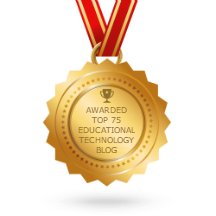Given all of the focus on the content of these canned curriculums, do the folks on the right really want us examining these products closely?
Emma Kate Fittes
Staff Writer
A task force assembled by Idaho’s Republican lieutenant governor has objected to the work of two well-known education companies among a long list of materials it says are promoting the “indoctrination” of students on issues of race and gender.
Both AVID, a nonprofit professional development provider, and EL Education, a nonprofit curriculum provider, were included in a list of examples published last week. The task force said the materials were gathered from district websites, parent submissions, and public records requests.
Members took issue with AVID and EL Education’s statements of support for the Black Lives Matter movement and the anti-racist resources they offer teachers.
Idaho’s State Board of Education quickly rebuked the task force’s claims, saying in a statement that the board found no evidence of indoctrination in the state’s schools.
But the situation shows the difficult position education companies could find themselves in.
Many companies in the K-12 market have seen demand rise for curriculum and other products that address issues of racial equity and inclusion. Teachers are seeking out resources that help them discuss current events, such as the killing of George Floyd and protests over police conduct, as well as broader explorations of the history of racial discrimination in the United States.
To continue reading, click here.
I ask this question, because as I wrote in the most recent NEPC Virtual Schools in the U.S. 2021 report:
Unsurprisingly, vendors have stepped into this void to play a significant role in driving adoption of their tools and pedagogies. Even as corporations confidently promote internal research on their products, however, their practice shows little regard for the reliability, validity, or independence of their work.101 Experience with corporate-produced curriculum argues persuasively that any measurement tools they produce should be viewed with heavy skepticism.
NEPC researchers have long expressed concerns about the role of corporate vendors in the K-12 classroom. A decade ago, for example, a report on school commercialism for the 2010-11 school year included a discussion of both Shell Oil Company’s “Energize Your Future” curriculum that portrayed the company as a leader in alternative technologies, and the American Coal Foundation’s “The United States of Energy” fourth-grade curriculum that 102 In each case, corporate image and interests were prioritized over facts. Eventually, a coalition of advocacy groups succeeded in pressuring Scholastic to stop publishing the latter and to vow to pull back generally from publishing corporate-sponsored materials.
While the benefits of coal may seem like an extreme example, the adoption of vendor-created curriculum prior to and during the pandemic has included equally questionable content. For example, activists posted the following bits of online curriculum from vendor Acellus.
One lesson . . . depicted one animal character asking a pig in make-up why she’s called “sweetie lips,” to which the pig blushed and replied, “Don’t ask. We’re not even going there.”
Another lesson asked students, “Osama Bin Laden was the leader of what terrorist group?” One of the multiple-choice answers was “Towelban.” Another lesson describing Harriet Tubman’s escape from slavery was illustrated with an image of a masked bank robber.103
. . . a first-grade language arts video lesson . . . shows an Acellus instructor teaching about the letter “G.” As she pulls something from the box in front of her, she says, “Watch out! Ooh, it’s a gun,” and removes a silver toy gun.104
The Hawaii Department of Education had used this curriculum for over a decade, exposing thousands of students to this kind of content, before any objections were raised.105 In fact, it wasn’t until many school districts adopted the Acellus online curriculum as a response to teachers’ need for online content during the pandemic that these examples were exposed. Many districts stopped using the curriculum following the revelations.106 Given that policymakers typically turn to whatever materials or tools are most readily available, the lack of validated measurement instruments in the field that so badly needs them is a critical concern. Commercial vendors, who have consistently proven themselves to produce only self-interested educational materials, will be only too happy to fill the void—likely making matters worse if researchers turn to them instead of developing valid instruments themselves. (pp. 61-62)















 12 Unique Blogs Are Written By Professors
12 Unique Blogs Are Written By Professors